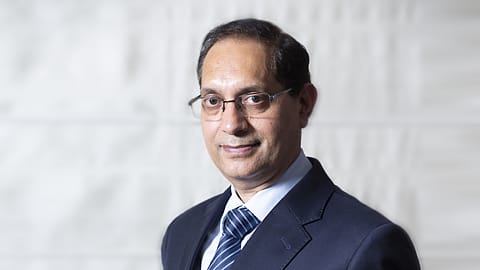Sebi chief urges PIDs to balance growth with vigilant oversight, calls for ‘Vishwas’ in market governance
Tuhin Kanta Pandey underscores the need for Public Interest Directors to act as custodians of investor trust while embracing technology and strengthening governance in India’s capital markets.

Securities and Exchange Board of India (Sebi) chairman Tuhin Kanta Pandey urged Public Interest Directors (PID) to move beyond traditional oversight and embrace the role of “strategic stewards” of market infrastructure institutions (MIIs).
Pandey was speaking at the second edition of the Public Interest Directors Conclave 2025 on Wednesday. He informed the gathering that the security markets in India have raised ₹93 trillion over the past decade through equity and debt, including ₹7 trillion in the first six months of FY26 alone. “Our markets today handle over 15 billion messages daily, peaking at over 27 billion. The scale is staggering, and with it comes greater responsibility,” he said.
He also emphasised that public interest in the MII ecosystem lies in balancing financial viability with governance, operational integrity, and the protection of investors. “Safety, efficiency, and financial stability must never be overshadowed by commercial interests,” he cautioned.
He called investor trust the cornerstone of market growth, and exhorted PIDs to become custodians of VISHWAS (trust), an acronym that he expanded as Vigilant Oversight, Independent Thinking, Safeguarding Public Interest, Holistic Risk Management, Watchdog of Governance, Accountability, and Systemic Stability.
“You are Sebi’s eyes and ears. Your role is fiduciary, moral, and institutional — not a checkbox exercise,” he averred. He also stated that the interventions of PIDs in MII activities should be properly recorded, and that investor protection should be the paramount guiding principle behind their decisions and interventions.
In his address, he also highlighted the growing threats of cyber fraud and technological disruptions, urging PIDs to treat system failures as financial irregularities. He endorsed the use of artificial intelligence and machine learning tools within the MII ecosystem. However, as a caveat, he also stressed the need for “guardrails to protect investor privacy and data integrity.”
“Responsible innovation must not come at the cost of systemic stability,” he said, adding that there is a need for standard operating procedures, robust internal controls, and documentation in collaboration with the Industry Standards Forum for uniformity across MIIs. He also advised PIDs to maintain regular contact with key stakeholders—compliance, risk, technology, and cybersecurity heads—to build and maintain a robust technological infrastructure and stay up to date on key cybersecurity trends.
Recommended Stories
Speaking on the recent policy reforms, he noted that Sebi has eased operational and appointment norms for PIDs. The mandatory cool-off periods between MIIs have been eliminated, along with the introduction of a two-stage appointment process. He also highlighted that Sebi is working on simplifying administrative frameworks and governance to promote ease of doing business and reduce compliance burden. Moreover, two executive directors are now required on MII governing boards to head critical operations and risk verticals, ensuring deeper oversight.
“As markets grow, you will need to balance the legitimate expectations of shareholders with the non-negotiable public purpose of your institution. Ethical governance must be embedded in the DNA of your organisation,” he said, reiterating Sebi’s commitment to empowering PIDs.